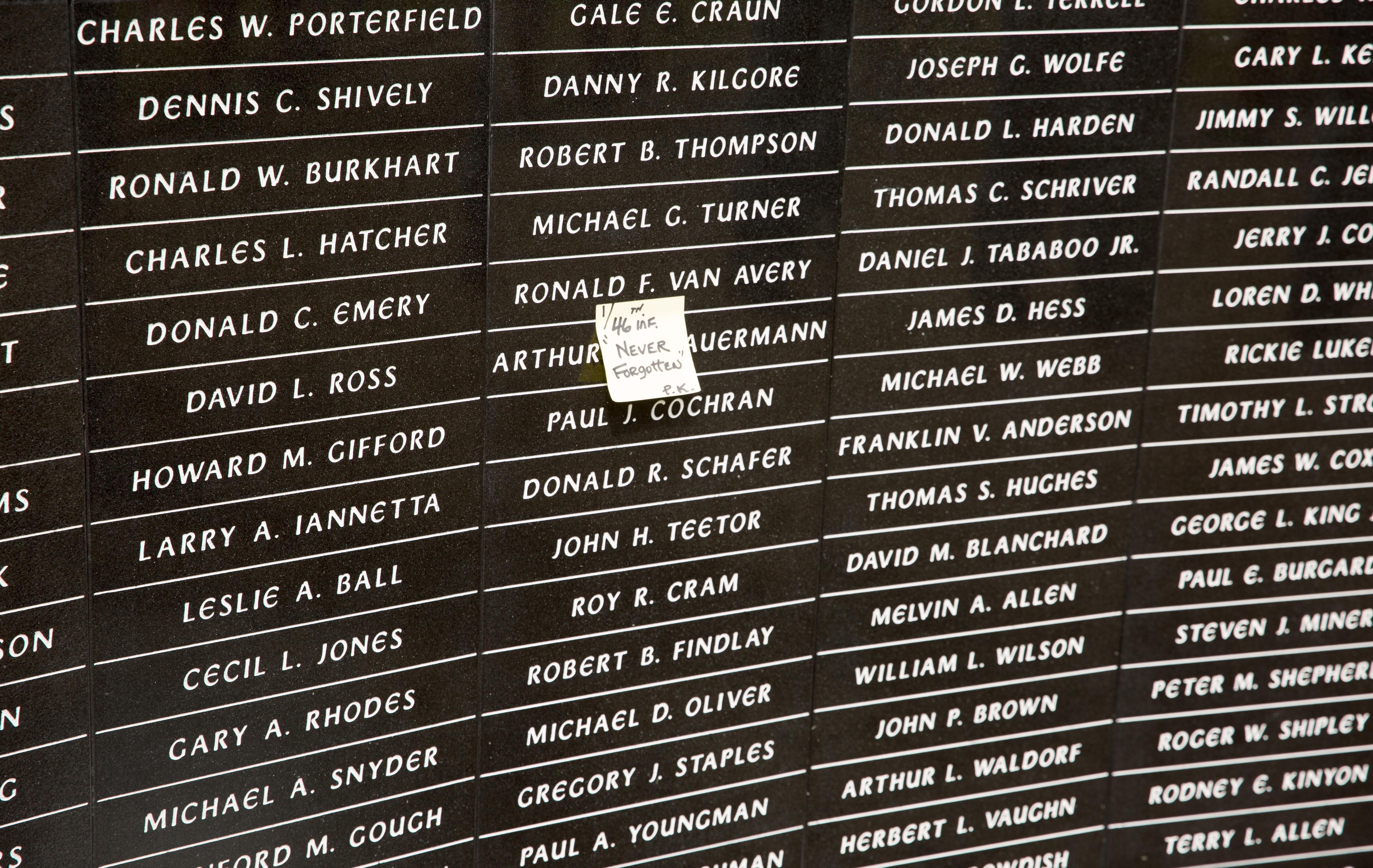Eight hundred American flags lined the coiled brick path that snakes up the hillside at the Oregon Vietnam Veteran's Memorial. A seemingly endless list of names — those who died serving their country during the war — rang out over loudspeakers, like a steady chant.
On this Memorial Day, many guests at the annual remembrance said they came to honor lives lost in combat. Others came to say thank you.
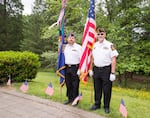
Bob Sigleer, who served in the First Marine Division during Vietnam War, and Martin Lackener, who served with the Second Marine Divison in the Persian Gulf War, said they came out to show their respects for those who served and died. "Not to sound cliche, but freedom isn't free," Lackner said. "The people that we honor today, Memorial Day, are the people who paid the price for that freedom."
Conrad Wilson / OPB
Some veterans stood stone-faced. Other sat on their walkers or in lawn chairs and smoked cigarettes. There were handshakes and hugs, tears and laughter.
The Vietnam War ended 43 years ago, and both the war and time have taken their toll.
"This moment is very, very important for me,” said Vinh Nguyen. “I come here every year.”
Nguyen was a lieutenant in the South Vietnamese army and fought side-by-side with the Americans against the communists from North Vietnam.
On Monday, he stood along the brick path with veterans from the U.S. Army’s 25th Infantry Division, all in matching light blue shirts. Together they listened to the names of those who died.
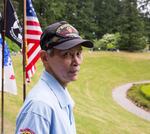
Vinh Nguyen was a lieutenant in the South Vietnams Army and fought side-by-side with the Americans against the communists in the North. He said he comes every year to thank and remember those who fought and served. "I come here for thank you brother, sister Americans, who side by side with us fighting for this freedom,” Nguyen said. “They trade their life in Vietnam for that freedom.”
Conrad Wilson / OPB
“When they read the names, I don’t know who they are,” Nguyen said. “Maybe sometime, maybe I meet them somewhere in Vietnam before.”
Nguyen left Vietnam in 1992 and today lives in Aloha. He still talks about the devastating feeling of April 1975, when Saigon – the capital of South Vietnam – fell to the North Vietnamese forces.
“That really hurt,” he said.
But he’s grateful for those who stayed to help fight and evacuate.
“I come here for thank you brother, sister Americans,” Nguyen said. “They trade their life in Vietnam for that freedom.”
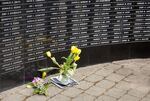
The names of those Oregonians who died during the Vietnam War were read Monday at the memorial at Portland's Washington Park.
Conrad Wilson / OPB
The Oregon Vietnam Veterans Memorial, eight acres in Washington Park, opened on Veterans Day 1987 and was inspired by the memorial in Washington, D.C.
Seven veterans, including the late Fran and Frank Rauschkolb, held barbecues and car washes for years to raise money to build it. The city of Portland donated the land.
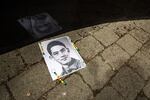
Every Memorial Day, the names of those veterans who served the Vietnam War and have died are read a the memorial in Portland's Washington Park.
Conrad Wilson / OPB
“It was a lot of work for my folks,” said their son, Fred Rauschkolb. “They lost a son in Vietnam, and they were in a cocoon for all those years. I think they decided that getting this thing built would get them out of their shell. And it did.”
Rauschkolb’s brother’s name is on one of the markers. He said he visits the memorial twice a week. It's a way to remember and spend time with his parents and brother.
“It’s important for people to learn what this is all about, for generations to know what happened in Vietnam," he said. "It’s doesn’t need to happen again.”
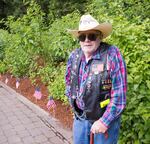
John Jones lives in Happy Valley. He served in the Vietnam War. He spent 18 years in the U.S. Army and five years in the U.S. Coast Guard. He comes to remember his sister's boyfriend who died in Vietnam.
Conrad Wilson / OPB
